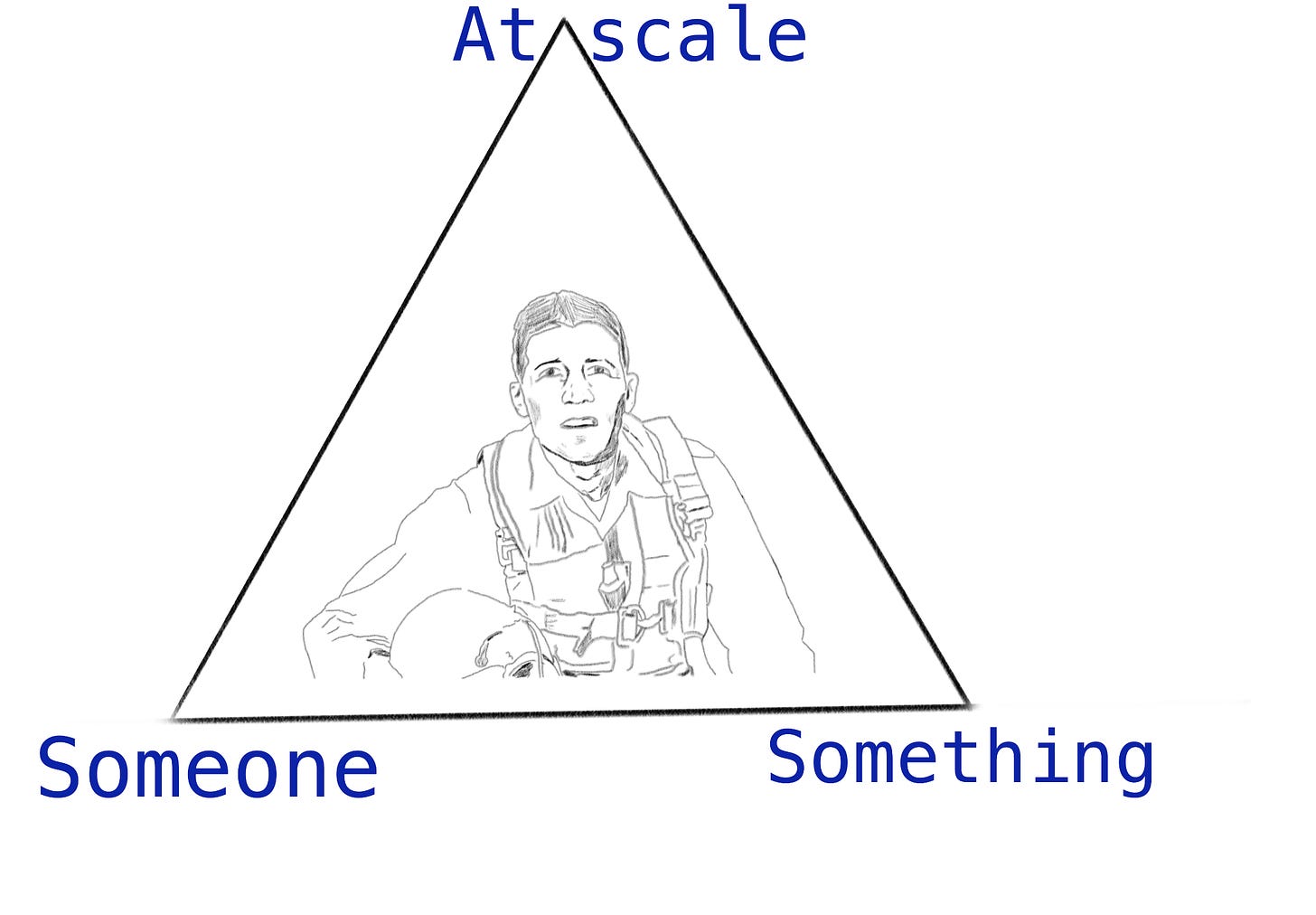This week, following my energy meant a lot of drawing and reading. Angie Wang of
and have started a “creating visuals for writing” group, which has reminded me of the joy in drawing. Which explains the drawings in this week’s newsletter.If anyone wants me to sketch something for them, let me know.
This Week’s Newsletter
A visual essay on spirituality
Is there anyone out there?
Who’s there? Is that God?
Not out here
In here
Thoughts on educating children


This week I really enjoyed these two articles from
by .Why We Stopped Making Einsteins
Think about the advent of the internet long enough and it seems impossible to not start throwing away preconceptions about how genius is produced. If genius were just a matter of genetic ability, then in the past century, as the world’s population increased dramatically, and as mass education skyrocketed, and as racial and gender barriers came thundering down across the globe, and particularly in the last few decades as free information saturated our society, we should have seen a genius boom—an efflorescence of the best mathematicians, the greatest scientists, the most awe-inspiring artists.
If a renaissance be too grand for you, will you at least admit we should have expected some sort of a bump?
And yet, this great real-world experiment has seen, not just no effect, but perhaps the exact opposite effect of a decline of genius.
If we accept that there is a decline in genius-level minds, and we believe that raising geniuses is important, we can only look so far as our mental model of intelligence. When the author looks at the data, he finds that it’s not access to intellectual subjects that historically created genius but early engagement with these subjects through interactions with adults who can model and encourage their success. I find this fascinating and reaffirming (admittedly, I care about parenting a lot).
How Geniuses Used To Be Raised
I think, however, that there isn’t any solution to this problem of education other than to realize that the best teaching can be done only when there is a direct individual relationship between a student and a good teacher—a situation in which the student discusses the ideas, thinks about the things, and talks about the things.
Even if you dispute the urge to raise a genius, you should notice the shocking disparity between our current educational system and the historical practices that molded great minds. I successfully navigated school, even attending an Ivy caliber college, yet until I was in my 30s I sought accolades more than personal interests. I realize now how unfulfilled I was, and I don’t feel like I’ve yet lived up to “my potential.” With my own children, I’m focused more on social-emotional development than genius-level intellect. Yet, the opportunity to have more one-on-one guidance working through hard problems to completion seems valuable for those skills too.
To start, my son and I are doing a deep dive through What If? Serious Scientific Answers to Absurd Hypothetical Questions by Randall Munroe of xkcd fame. It may not be the first place to start a classical education, but we’re having fun and exploring topics in a meandering way that teaches him to follow threads. We’re averaging 2 pages a day right now. I’ll continue taking ideas from these essays to work with my own children in the coming months and years. I’d love to hear if any of you have done the same.
Interesting things I’m working through
From The Best Minds of My Generation:
The mass media characterization of the Beats is about drugs, counter-culture, and revolution. Kerouac used the name to talk of beatification, or “dark night of the soul,” while also layering in street culture of being down and looking up. I tend to discount most of what I hear on mass media, but to hear Ginsberg write about the difference in characterization has me thinking about how to keep control of a narrative while not trying to make it about one person.
An idea I’m working on:
The Boyd triangle.
John Boyd said, “you can either be something or do something.” I think you can have both if you’re willing to sacrifice scale. If you’re going to work at an exponential scale, you can either be something or do something. But if you choose to work at small scale, you can be something and do something. I’m thinking of niche fame by David Perrell or 1,000 true fans by Kevin Kelly.
What are the implications of sacrificing a need to work at scale? What does it mean for purpose-led businesses or personal work? If you’ve thought about the tradeoffs you have to make in your career or business, I’d love to talk through some ideas.
Things I could use help with
I’m still thinking a lot about grassroots activism. If you know people or resources that could help frame how I approach it, send me a message.
If you like the drawings, let’s see what we can create together. Totally free of charge, I’d just like to collaborate on some fun visuals.
Have an intentionally prosperous week,
Latham









Your drawings are amazing!!
So much to unpack. Looking forward to our long going to longr conversation on everything from raising children to impact scale.